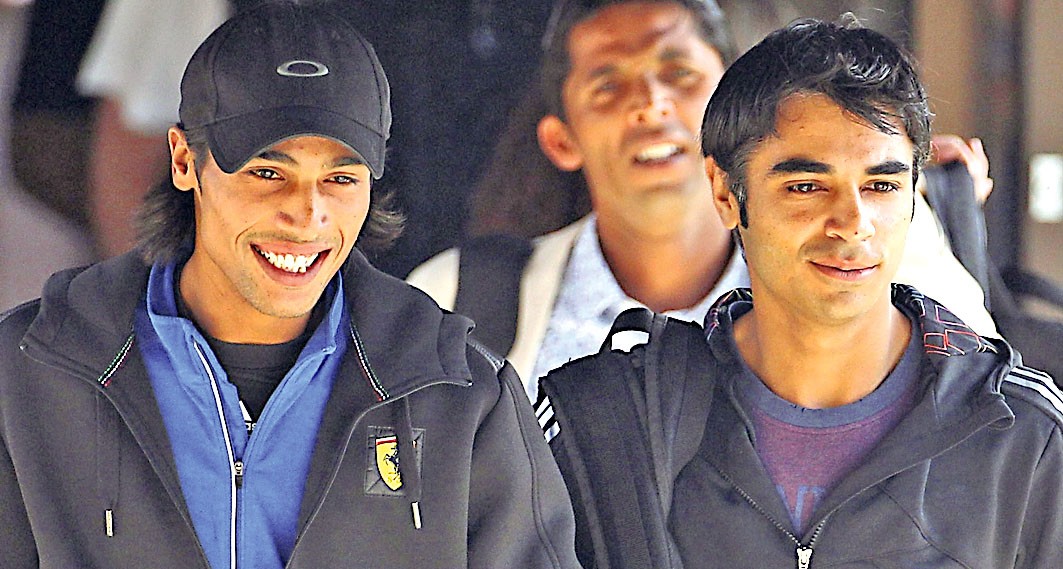
Tackling the issue of match-fixing rather than bringing international cricket to Pakistan should be the top most priority of the new chairman

It was a fine morning of June 2006, and my article criticising selection of England-bound team had appeared only a day ago in the sports section of ‘The News on Sunday’. I rang up the PCB headquarters to find out whether the chairman had seen my article. To my surprise, I was told that the chairman wanted to talk to me and within no time Shaharyar Khan was on the line. "I am coming to Islamabad tomorrow to attend a hearing in National Assembly and what about having a meeting once I am free?" he came straight to the point. "I would be honoured, sir," was how I replied and felt.
The next day, he joined me for hi-tea in Holiday Inn before flying back to Lahore. His son, Omar, was also present during the meeting. I spoke tirelessly for around one hour regarding various aspects of Pakistani cricket and he listened to me patiently. I probably made some sense to him as just before he rose, he made me an offer. "Considering the prime posting you are holding in Islamabad, I know you won’t accept my offer but that does not stop me from making it," he set the background. "Why don’t you join us in the PCB and we would give you a handsome package," he said.
I thanked him for his magnanimous offer, yet expressed my inability to join the PCB as I was serving as Assistant Commissioner in Islamabad in those days.
The meeting left good impression on my mind and that’s why when he was elected chairman this August, I expected he would be able to clean up the mess the PCB has been in for quite some time.
However, my expectations received a rude jolt when I came across one of his statements made shortly after he had assumed the office. He had shown his interest in pursuing the case of Muhammad Amir and bringing him back to the Pakistani fold at the earliest. Now, to me and to many others, this seems to be short-term thinking. Probably, the new chairman is too eager to put Pakistani team on a winning streak and count it as his achievement, for understandable reasons.
But by doing this, he would do great disservice to the country in general and the game of cricket in particular. Over the last few years, the menace of match-fixing has penetrated almost every aspect of cricket.
Moreover, those involved have acquired such proficiency that they do not leave behind any hard evidence. Such an extraordinary situation needs extraordinary measures. Any leniency in this regard on the part of the PCB would give a wrong signal to the Pakistani youth and create a favourable environment for match-fixing.
In other words, this would mean that if you are young and talented, you can get away with anything. The more talented you are, the more likely you are to be forgiven.
We must remember here that match-fixing is no ordinary crime; it is an unforgivable crime of selling your country’s honour in lieu of a few bucks.
In such matters, true deterrence would only be created if the PCB gave a message, loud and clear, to all budding cricketers that no matter how talented they are, if they do something which would bring them, their country or the game itself to disrepute, they would never be pardoned.
One would rather go to the extent of suggesting that since the banned players are sometimes seen sitting in TV channels as experts, the PCB should take up the issue with the management of channels or PEMRA to make sure that such players are not allowed to get associated with cricket in any form. The PCB may have to seek new legislation in this regard too.
By having fixed matches, such cricketers have committed crimes and there should be no place in Pakistani cricket for the criminals.
They should not be allowed to interact with, or influence, young cricketers in any manner whatsoever.
In sentencing Salman, Asif and Amir under the Prevention of Corruption Act 1906, Criminal Law Act 1977 and Gambling Act 2005 in England, Mr Justice Cooke aptly remarked: "It is the insidious effect of your actions on professional cricket and the followers of it which make the offences so serious. The image and integrity of what was once a game, but is now a business is damaged in the eyes of all, including the many youngsters who regarded three of you as heroes."
It would also be pertinent to quote here one of the recommendations made by Justice Qayyum in his inquiry report on match-fixing in Pakistani cricket more than a decade ago. "That the PCB should adopt a zero tolerance approach in this matter."
In conclusion, tackling the issue of match-fixing rather than bringing international cricket to Pakistan should be the top most priority of the new chairman.
After all, if our own house is not in order, how can we think of the matters external to it? The chairman should also remember that already there is an impression out there in the cricketing world that the PCB does not take issues like match-fixing and suspicious bowling actions seriously enough.
There is therefore all the more need to go tough on match-fixing. We may be losing one Amir by following this course of action but we would be saving many Amirs of future from choosing this path.
Needless to say here, an honourable defeat is worth more than a victory achieved through tainted players.
The writer is a civil servant and Barrister-at-Law with special interest in sports law.